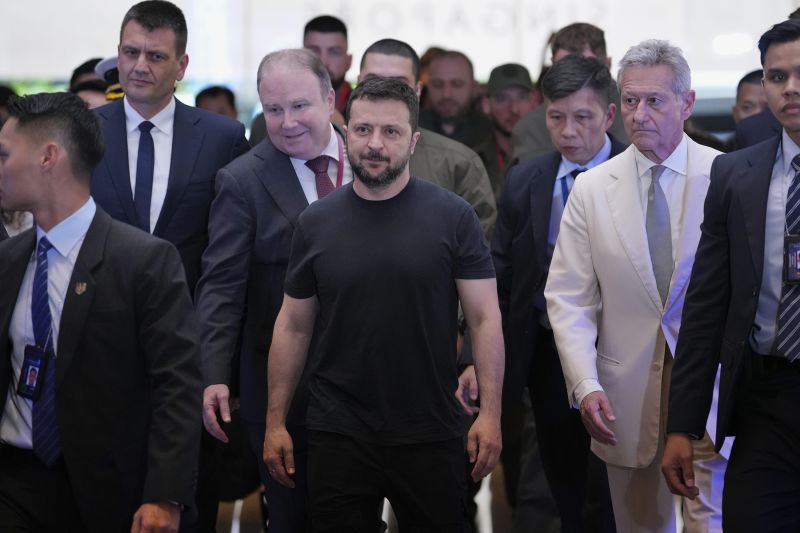In an unexpected twist in global politics, Ukrainian President Volodymyr Zelensky recently staked a claim for his country’s peace plan in the distinctly unconventional setting for such international deliberations—the annual Singapore defense summit.
Known for his eccentric governing approach, Zelensky has become an emblem of unconventional political strategies. His surprise visit to the august halls of Singapore’s annual defense summit underlined his dexterity in the political sphere while highlighting Ukraine’s increasingly thorny predicament.
As the former comedian turned national leader hinted, the unusual choice of venue was an unambiguous assertion of his country’s growing security concerns. Amid the daunting Russian military advance, Zelensky’s gesture to engage with an audience known for its keen acquiescence to geopolitical shifts can be viewed as a sure-footed and bold move.
This overt and strategic disposition was demonstrated in his keynote speech at the gathering, where the President struck a somber but resolute tone. Emphasizing that Ukraine is more than a mere theater of geopolitical warfare but a nation with its own distinctive identity and aspirations, Zelensky underlined the urgency for a comprehensive peace plan.
While acknowledging the deep-seated challenges that Ukraine faces due to the protracted conflict with Russia, Zelensky nonetheless presented an optimistic vision of his nation’s future. He expressed confidence that Ukraine’s peace plan, predicated on a negotiated and peaceful settlement with its Eastern neighbor, can successfully arrest the creep of violence that has beleaguered the country for years.
President Zelensky’s Singapore visit was also notable for the flurry of bilateral engagements that occurred on the sidelines of the defense summit. He held individual meetings with several national and regional leaders, calling for bolstering international support for Ukraine’s peace plan. These meetings marked a clear effort by Zelensky to generate a coalition of supporters, even as he pushes hard for a de-escalation of hostilities.
At one stage, the Ukrainian President made a pointed reference to the historical allegories of Singapore’s own national journey. Citing the city-state’s transformation from a beleaguered post-colonial entity into a prosperous hub of finance and technology, Zelensky used the powerful narrative as a bid to inspire a similar trajectory for Ukraine.
Interestingly, Zelensky’s discourse highlighted a normative shift in international politics, where defense conversations are no longer confined within cold corridors of bureaucracies. By choosing to articulate Ukraine’s peace narrative in a non-traditional but significant defense meet in Singapore, he demonstrated that in politics, even in dealing with the mechanics of peace and war, improvisation has its time and place.
Overall, Zelensky’s surprise sojourn to Singapore and his impassioned address at its defense summit spoke volumes about his unwavering conviction to peaceful diplomacy, even in the face of escalating tensions. A multi-layered strategy of international engagement, coupled with a carefully curated narrative of peace, could well be Ukraine’s ardent bid for de-escalation and its hope for a peaceful future.




